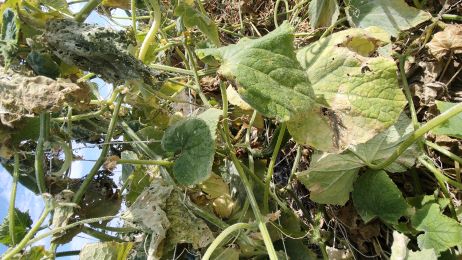 Cleaning Vegetable Gardens
Cleaning Vegetable Gardens
To many “in-the-know” horticulturists of the moment, keeping dormant or dead plant material in place through the winter to help pollinators and beneficial insects is not new. Overwintering bees and beneficials live in the soil, the canes of dead grass, the hollows of dormant perennials, and the tufts of fallen leaves. Keeping some or all this material in place until the following growing season, the insects are much more apt to survive the harsh winter conditions with the protection provided. By preserving the waste, you are preserving the protectors. It is a noble practice, yet it is best relegated only to lawns and landscapes.
By the nature of their being, vegetable gardens will always be prone to pest issues. Their overall purpose is to produce a crop. The crop is something that we find desirable and typically edible. The problem is that if we utilize the garden for those reasons, so do the bugs. Many insect issues can plague a vegetable garden through the growing season, including aphids, cucumber beetles, squash vine borers, squash bugs, and spider mites –to scratch the surface.
And so, we take the necessary precautions, both proactive and reactive, organic and inorganic. We experiment through the growing season to find the “just right” treatment mix to optimize our plant health and production, minimize our pest pressure, and protect our beneficial insects. And yet, year after year, we see many of the same pest issues return to our gardens.
One primary reason this can occur is that many pests can overwinter in your soil and plant debris. As the beneficials find a way to stay warm in the dormant plants and soil of your ornamental gardens throughout the winter, insect pests can do the same in your vegetable garden. For this reason, best practice with a winterized vegetable garden is either a clear-all maintenance practice, another practice known as solarization, or using a cover crop.
The clear-all approach, likely the simplest of the bunch, entails removing not just the notable plant debris from a garden area for the winter but all the plant debris –including remnant leaves, vines, tendrils, roots, and desiccated fruit. Organic matter is gone, and the pests are left exposed to the elements without a location to hide throughout the season, leaving their demise much more likely.
Another practice, solarization, is the utilization of a plastic tarp over a garden bed in conjunction with the sun's heat. With the intent of utilizing the heat to essentially “cook” your soil through the season, this practice will eradicate insect pests and potentially nematode and disease issues. Done correctly, your garden soil can be well and efficiently “sterilized” before the onset of the next growing season.
The key to responsible yet efficient garden management through winter lies in selectivity in how they are treated.
Anthony Reardon, Horticulture Small Farms Agent, 2023
Return to Vegetables Agent Articles
Have questions?
The Garden Hotline is staffed by trained EMG volunteers and Extension staff who will assist you with questions.
Phone: (913) 715-7050
Email: garden.help@jocogov.org